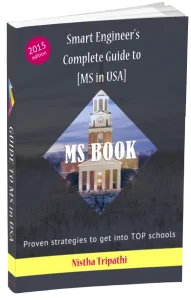Resumes are a fact-based densely packed one sheet story about who you are, what kind of employee you are, and how you can bring value to the company you’re applying for. According to Google’s head of recruiting, “The no. 1 thing you want to be thinking about is to tell your story — not just your work experience, but also what you’ve learned and the accomplishments you’re most proud of.” This is where interests and hobbies for your resume come into the picture.
One way to tell a story and personalize your resume is to include a select few hobbies or interests that illustrate your life outside of work. While your resume should mainly focus on your career and educational achievements, your listed interests and hobbies for your resume help paint a fuller picture of what kind of person you are in the real world.
This is a great opportunity to connect with your interviewer on a personal level. Interviewers aren’t just looking for the most qualified candidate, but they are looking for someone they want to work with. Making personal connections during your interview is a crucial step in landing the job.
What is an interest?
Interests are various topics and themes that you enjoy engaging in your personal life. They are the things you feel most passionate about and that excite you in your free time. Some quick examples are modern art, traveling, blogging, or listening to music. Take a look below for a longer list of examples.
What is a Hobby?
Hobbies are similar to interests, but hobbies are the actual activity you engage in. A hobby is an activity you enjoy doing on a regular basis and have a decent amount of knowledge in the topic. These are things you should have examples of so you can share some stories with your interviewer. Some examples of hobbies are rock climbing, cooking, surfing, or gardening. Take a look below for a longer list of examples.
Should you Include Hobbies on your Resume?
While listing hobbies on your resume is an excellent way to share your personal life, it isn’t always appropriate. If you are running out of space on your resume or have too much relevant work experience already, this is some information you can remove and cover in the interview process. However, if you are early in your career and need to fill space, this is a great way to show skills you have while also conveying information about your life outside of work.
Here are some key examples of when it is appropriate to include hobbies on your resume:
- You have minimal education experience.
- You have minimal work experience.
- The job listing description outlines responsibilities related to your interests or hobbies.
- The company asks applicants to list their hobbies or interests.
- The company is seeking out applicants with unique characteristics or personalities.
Each job application is going to vary, so it’s important to tailor your resume to that job. For some examples of how to write your resume, click here:
Developing Software Engineer Resume – FREE Template
What Your Hobbies Say About You?
Adding hobbies is not just a space filler. When done intelligently, it can communicate insightful details about you that any sharp interviewer would pick up on.
For example, ‘playing chess’ shows that you can think strategically and won’t rush into decisions. Similarly, ‘playing cricket or football’ can show your ability to work well with a team. Additionally, talking about how you go surfing or bike riding every week can show that you’re hard-working and determined.
The important thing is to convey the right insights according to the job you are applying for. For most of the knowledge worker jobs these days, it helps to highlight logic, problem solving, strategic mindset, teamwork and persistence via your hobbies.
Where to List Hobbies on Your Resume?
Listing your hobbies should be one of the last things on your resume. Similar to skills, you want your hobbies and interests to be listed in bullet point form with no explanations. During the interview, you will have the chance to discuss your hobbies and tell stories. If you want to know what skills to include on your resume, click below:
Key Skills That You Should Include on Your Resume
Best Interests and Hobbies to Include
While there are a lot of hobbies and interests that you might have, the ones you include on your resume should be appropriate, professional, and relevant to the job you’re applying for. Here are some examples.
Relevant Hobbies for an Engineering Resume:
- Designing websites
- Assembling computers
- Artistic hobbies such as photography, painting, or drawing
- Community Service
- Exercises like surfing, rock climbing, hiking, etc.
- International Travel
- Public speaking
- Playing chess
- Writing or blogging
- Reading (can specify genres you enjoy)
Relevant Interests for a Resume
- Musicals or theatrical plays
- Writing
- Gaming
- History (can specify areas of interest)
- Volunteering (can specify areas of interest)
- Travel
- Nature
- Foreign Languages
- Listening to Music and/or Concerts
Conclusion
Interests and Hobbies on your resume
are a great way to educate your interviewer about your personal life before and during the interview process. Including these items can be a great way to fill the space on your resume or illustrate why you’re the right person for the role.
Remember, the interviewer is often someone who you will work with when starting the job. They are picking people they want to work with in the future, and think will be a great fit for their team. Don’t be scared to share a little bit about your personal life so the interviewer can begin to trust you and feel connected to you as a person. Creating these social connections is a great way to get the job!


No comment yet, add your voice below!